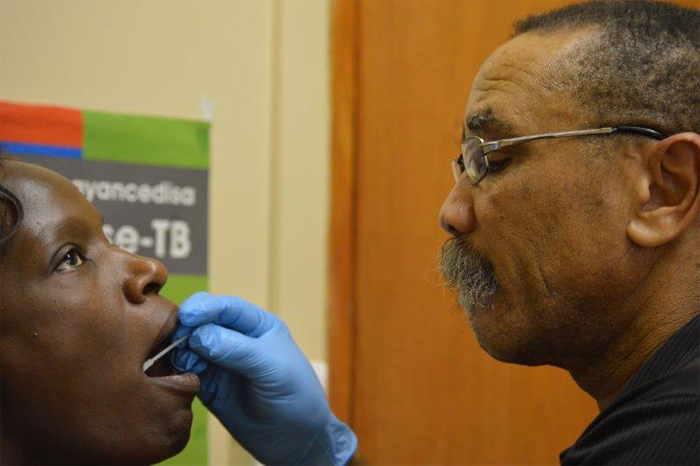A crusade for the holy grail of TB testing
12 April 2016 | Story Yusuf Omar. Photo supplied.
The war against tuberculosis is a step closer to being won after UCT researchers received a generous research grant to develop a cheap, safe and simple method to test for the disease.
Last year, the World Health Organisation said that alternatives to current TB testing were badly needed, so this US$1.02 million grant from the Bill & Melinda Gates Foundation is a welcome boost.
The two-year study builds on a pilot study which found that oral swabs correctly detected TB in most adult participants. UCT's South African Tuberculosis Vaccine Initiative (SATVI), with counterparts from the University of Washington, will test 245 South African adults and 100 South African children. They aim to confirm that oral swabs can be used to detect TB accurately.
Researchers will compare two different kinds of oral swabs and three sampling locations in the mouth: cheek, tongue and gums. The results of these oral swab samples will be compared to traditional methods, including sputum testing and clinical diagnosis.
Diagnosing TB currently relies on analysing sputum: thick, sticky phlegm that is coughed up from the lungs. But the gelatinous quality and complexity of the substance make finding the TB bacteria difficult.
Using sputum is problematic for other reasons too. Health care providers who collect sputum are at risk because TB-sick patients who cough up sputum for testing release aerosols that can spread infection. Moreover, neither asymptomatic patients nor children are able to produce the required sputum for testing.
Associate Professor Mark Hatherill, the director of SATVI, says, “By the time people are coughing and producing sputum, they are often sick and highly contagious. An important goal in eradicating TB is to diagnose and treat people early to prevent the disease spreading to others.”
Gerard Cangelosi, leader of the study and professor of environmental and occupational health sciences in the University of Washington School of Public Health, says, “An alternative to sputum testing has been a holy grail in TB testing and diagnostics. There's a huge need, and we think the oral swab addresses this need.”
 This work is licensed under a Creative Commons Attribution-NoDerivatives 4.0 International License.
This work is licensed under a Creative Commons Attribution-NoDerivatives 4.0 International License.
Please view the republishing articles page for more information.










